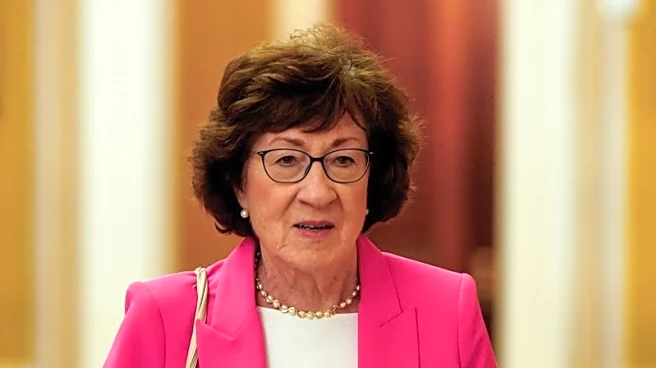What's Happening?
WellSky, a healthcare technology company, has released a study in collaboration with The Center for Generational Kinetics, examining the perceptions of healthcare careers across different generations. The study surveyed 1,200 U.S. workers, including nurses, healthcare professionals, and non-healthcare workers considering entering the field. It found that older Millennials (ages 37-45) have a more favorable view of healthcare careers compared to younger generations, with 85% expressing positivity. In contrast, only 76% of Gen Z (ages 18-29) share this optimism. The study also revealed that younger Millennials prioritize clear career paths, with 36% considering it a top factor in job decisions. Additionally, a positive workplace culture is crucial for retention, with 47% of healthcare workers rating it as a key factor in job selection.
Why It's Important?
The findings of the study are significant as they highlight the challenges faced by the healthcare industry in attracting and retaining talent across generations. As the demand for healthcare professionals grows, understanding generational differences in career perceptions can help organizations tailor their recruitment and retention strategies. The study suggests that emphasizing career growth opportunities and fostering a positive workplace culture are essential for maintaining a stable workforce. This is particularly important as healthcare providers face increased workloads and competition for staff. By addressing these generational preferences, healthcare organizations can build resilient teams and improve employee satisfaction.
What's Next?
Healthcare leaders are encouraged to use the study's insights to develop strategies that bridge generational gaps in career perceptions. This includes creating clear career advancement paths and investing in workplace culture improvements. Organizations may also focus on providing the right tools and technology to support employees, ensuring they feel valued and empowered. As the competition for healthcare staff intensifies, these strategies could be crucial in attracting new talent and retaining existing employees. The study serves as a roadmap for healthcare employers to navigate workforce challenges and build a thriving, multi-generational team.
Beyond the Headlines
The study's implications extend beyond immediate recruitment and retention strategies. It highlights the need for healthcare organizations to adapt to changing workforce dynamics and generational expectations. This may involve rethinking traditional career paths and communication methods to better align with the values of younger generations. Additionally, the emphasis on workplace culture suggests a shift towards more inclusive and supportive environments, which could lead to long-term improvements in employee engagement and productivity. As healthcare continues to evolve, understanding and addressing these generational differences will be key to sustaining a robust workforce.









